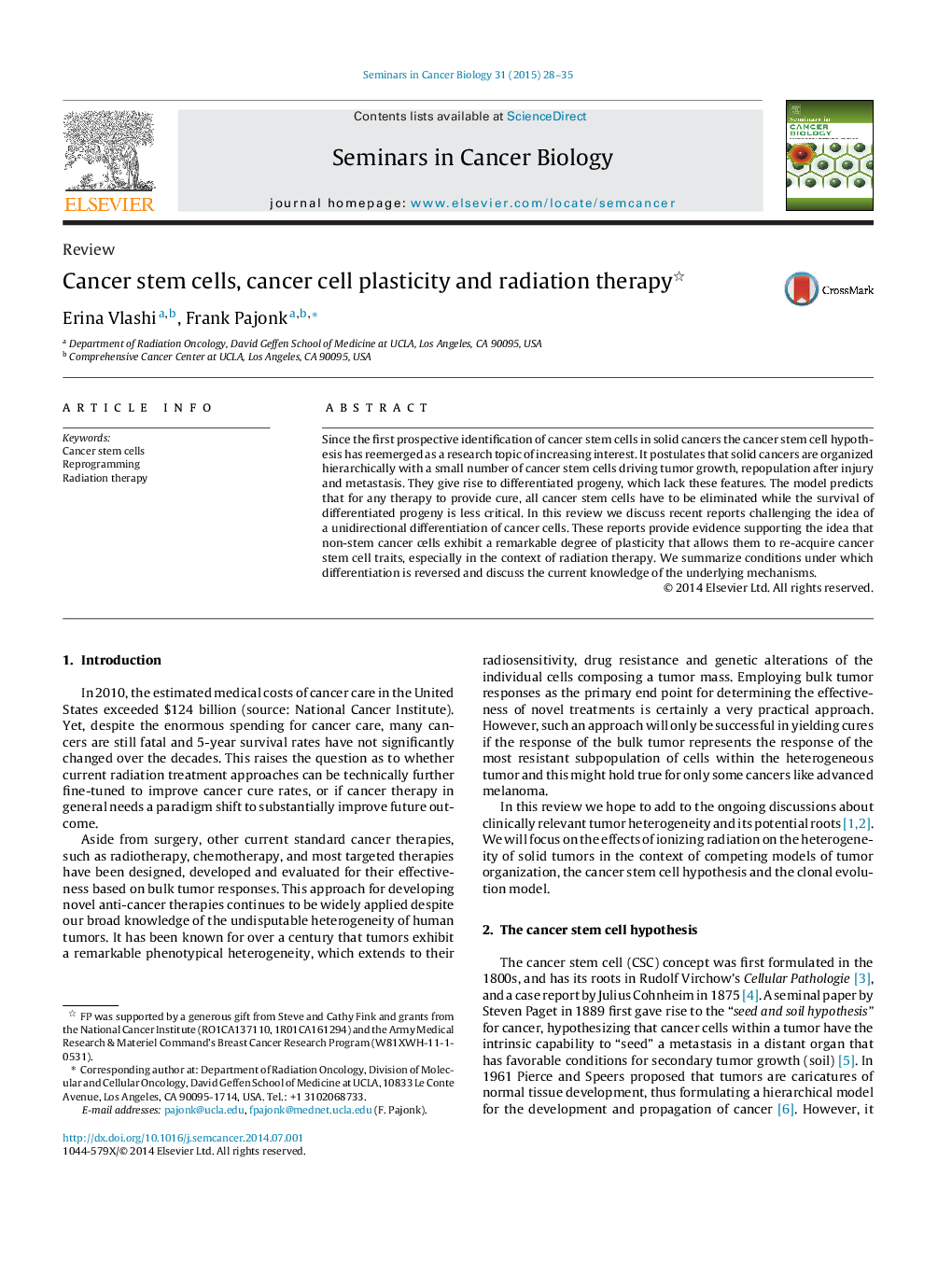| Article ID | Journal | Published Year | Pages | File Type |
|---|---|---|---|---|
| 2023621 | Seminars in Cancer Biology | 2015 | 8 Pages |
Since the first prospective identification of cancer stem cells in solid cancers the cancer stem cell hypothesis has reemerged as a research topic of increasing interest. It postulates that solid cancers are organized hierarchically with a small number of cancer stem cells driving tumor growth, repopulation after injury and metastasis. They give rise to differentiated progeny, which lack these features. The model predicts that for any therapy to provide cure, all cancer stem cells have to be eliminated while the survival of differentiated progeny is less critical. In this review we discuss recent reports challenging the idea of a unidirectional differentiation of cancer cells. These reports provide evidence supporting the idea that non-stem cancer cells exhibit a remarkable degree of plasticity that allows them to re-acquire cancer stem cell traits, especially in the context of radiation therapy. We summarize conditions under which differentiation is reversed and discuss the current knowledge of the underlying mechanisms.
